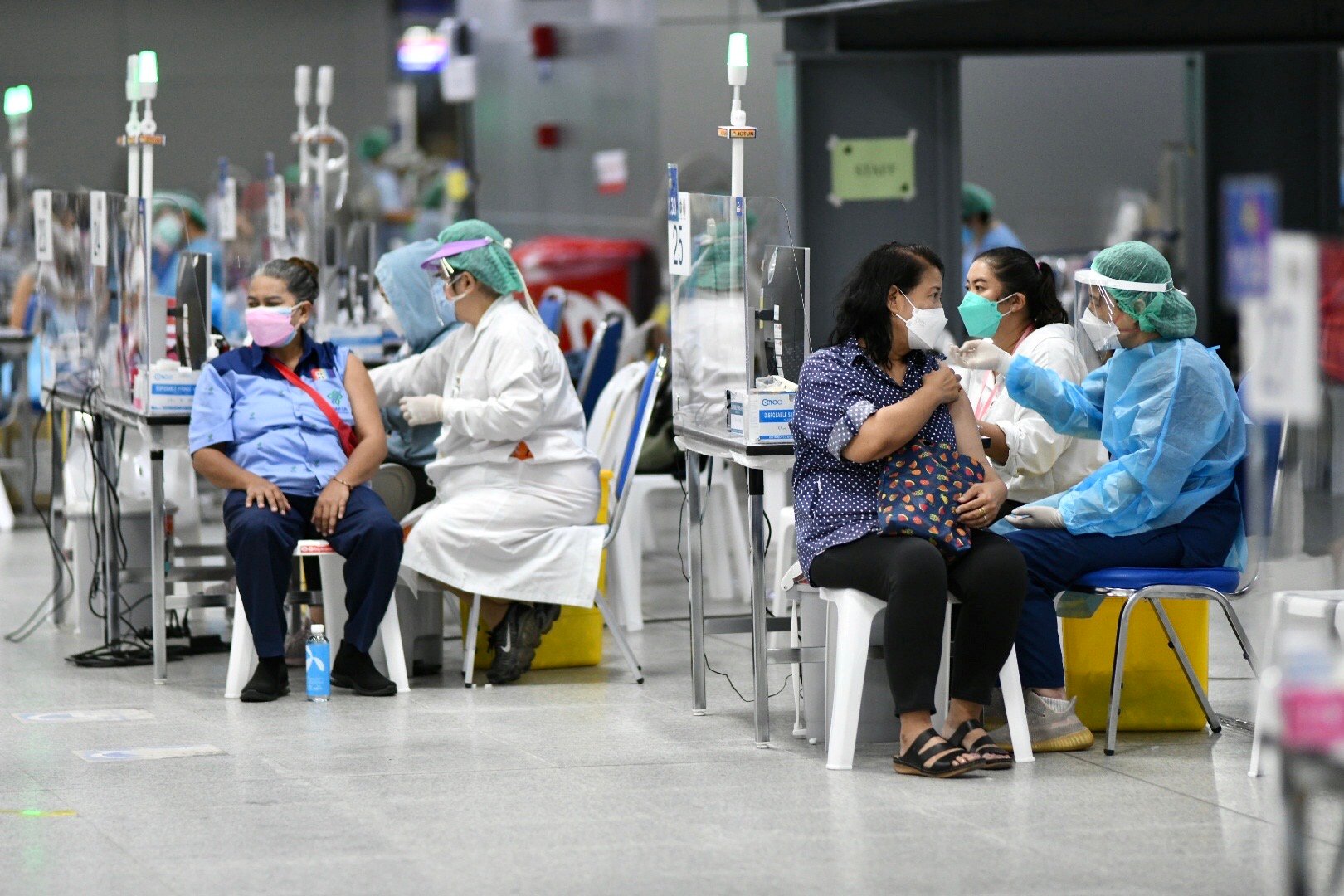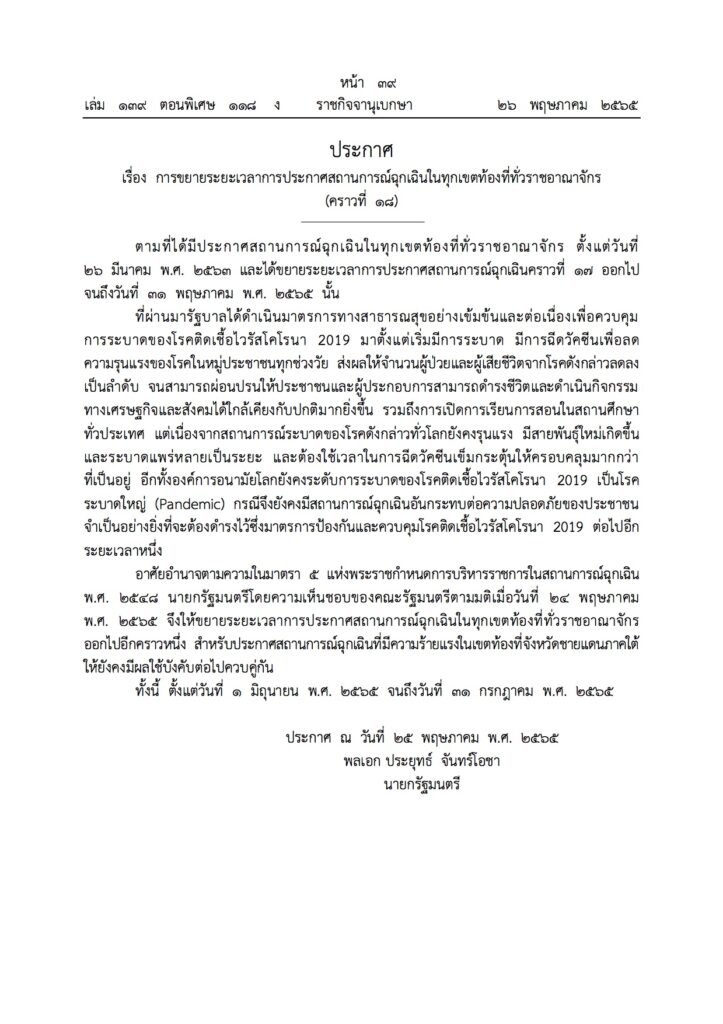
National –
The Royal Gazette officially announced the extension of the Emergency Decree for another 2 months as, according to The Thai Ministry of Public Health, the Covid-19 coronavirus continues to spread worldwide.
This will be the 18th extension of the Decree, running since early 2020. The extension will be effective from June 1st to July 31st, according to the announcement on the Royal Gazette website.
Although the government has relaxed its preventive measures to allow people and entrepreneurs to do more activities, the pandemic situation around the world is still severe with the occurrence of a new species which will take more time to provide booster vaccinations. The government, therefore, had extended the declaration of a state of emergency in all local areas throughout the Kingdom from 1 June until 31 July 2022.
Critics have claimed the decree is being used to stop potential pro-democracy and anti-government protests, but the Thai government denies this.
